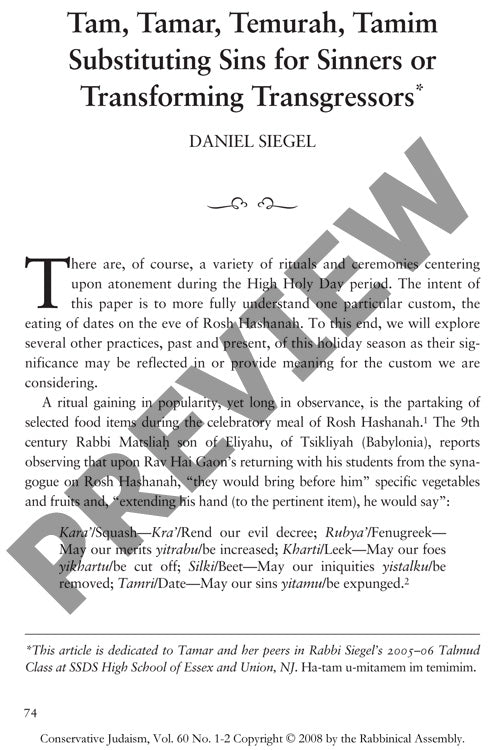Tam Tamar Temurah Tamim Substituting Sin
Couldn't load pickup availability
When Jews worldwide bite into dates on Rosh Hashanah eve, they participate in a ritual whose linguistic and theological roots reveal profound connections between substitution, atonement, and personal transformation. The custom, first documented in 9th-century Geonic literature, exemplifies how High Holy Day practices employ symbolic substitutes to transfer sins away from practitioners. Through analysis of Talmudic, Geonic, and Kabbalistic sources, this research uncovers how three interconnected rituals—symbolic food consumption, tashlikh, and kapparot—share a framework where sins are symbolically transferred to substitute bearers. The Hebrew word for date (tamar) creates deliberate wordplay with yitamu (be expunged) and temurah (substitution), linking the practice to both Isaac's binding and vicarious atonement. Two distinct interpretative traditions emerge: Beruryah's concept of substituting sins through external agents, and the Kabbalistic view emphasizing personal transformation where individuals become tam (whole) by integrating their bitter (mar) aspects. The date-eating ritual thus serves dual purposes: petitioning divine forgiveness through substitutionary atonement while expressing aspirations for personal transformation, as practitioners seek to become their own temurah through teshuvah (repentance), converting bitterness to sweetness at the year's threshold.

More Information
-
Physical Description
-
Publication Information
Published 2007-2008
ISBN
-
Publication Credits
Daniel Siegel

